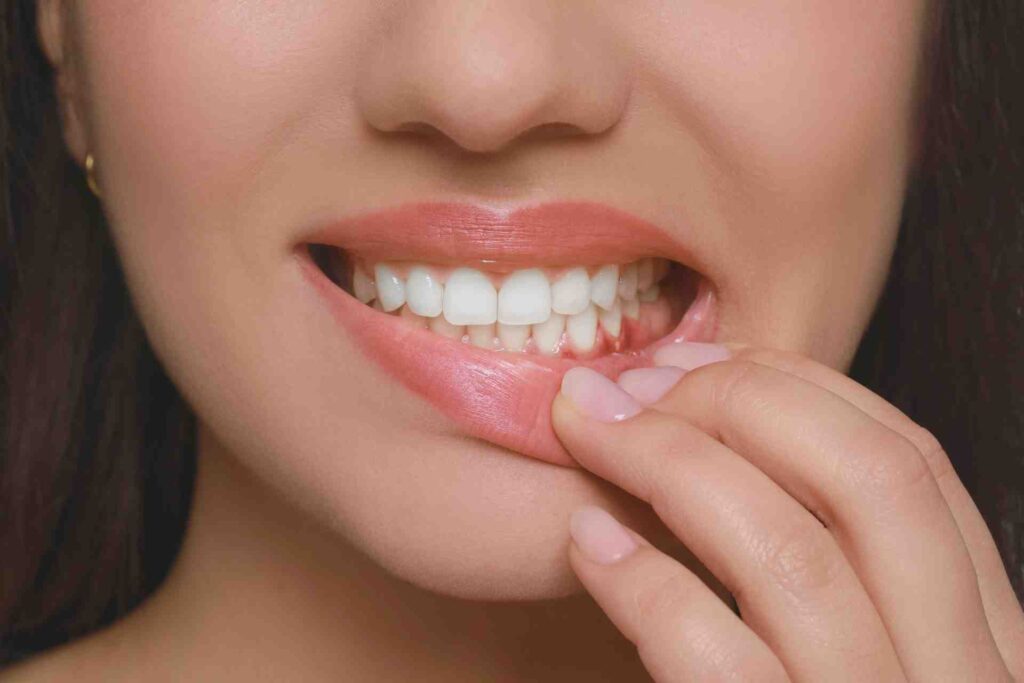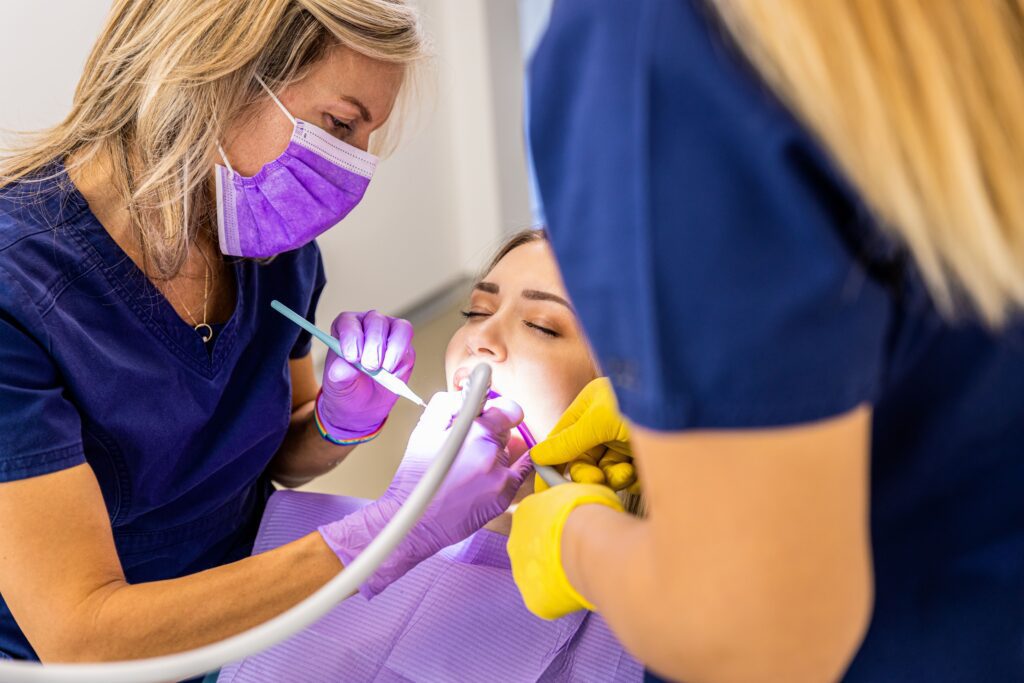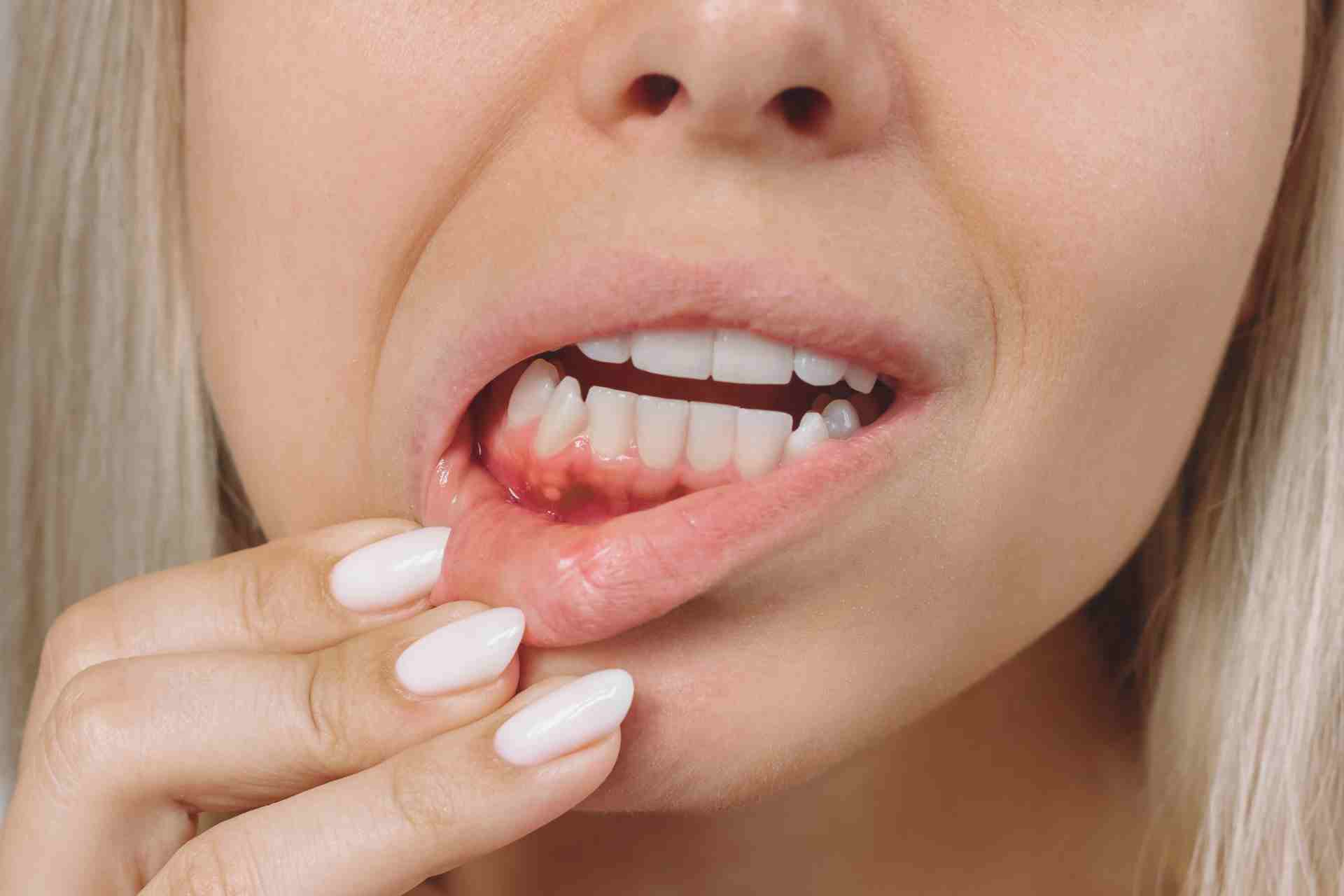Highlights
- Gum boils are a sign of infection and won’t fully heal without dental treatment.
- Home remedies like saltwater rinses or cold compresses may ease discomfort but are only temporary.
- Never pop a gum boil, it can worsen the infection and spread bacteria.
- Professional care may involve antibiotics, draining the abscess, deep cleaning, or root canal therapy.
- Prevention is key: good oral hygiene and regular dental visits lower your risk of gum boils.
What is a Gum Boil?
A gum boil, also known as an abscess, is a small bump or pimple-like swelling on the gums that forms due to infection. These bumps are often red, tender, and sometimes filled with pus, indicating that the body is fighting an underlying issue. Gum boils are a common problem, but they serve as an important signal that your gums need attention. Left untreated, they can lead to more serious dental complications.
Common Symptoms of a Gum Boil
- Redness and swelling around the affected area
- Tenderness or pain when chewing or touching the spot
- Pus discharge or a bad taste in the mouth
Why Do Gum Boils Happen?

If you’ve noticed a tender bump on your gums, it might be a gum boil. Your body’s way of signaling that something isn’t quite right. Gum boils, also called abscesses, are often caused by an underlying infection in the mouth.
Underlying Causes of Gum Boils
- Tooth infection or untreated cavity – Bacteria from a deep cavity or infected tooth can spread to the gums, causing an abscess.
- Gum disease (gingivitis, periodontitis) – Conditions like gingivitis or more advanced periodontal disease can lead to pus buildup and infection in the gums.
- Poor oral hygiene – Skipping your brushing and flossing routine creates the perfect environment for bacteria to thrive.
- Trauma or irritation to gums – Injury to the gums, such as from sharp food or dental appliances, can also trigger the formation of gum boils.
It’s important to know that gum boils are not random. They’re your body’s way of alerting you to an infection that needs attention.
Can a Gum Boil Go Away on Its Own?
Quick answer: No, gum boils rarely heal permanently without proper dental care.
While they may shrink or drain temporarily, the underlying infection remains untreated and can worsen over time. Gum boils are often a sign of a deeper issue, like an abscess or severe gum disease, that requires professional attention. Ignoring a gum boil can lead to serious risks, including:
- Spreading infection to other areas of your body
- Tooth loss if the infection damages surrounding tissue
- Bone involvement, which can be painful and harder to treat
How to Relieve Gum Boil Pain at Home (Temporary Solutions)
Dealing with a gum boil can be uncomfortable (and let’s be honest, pretty annoying), but there are a few safe, at-home remedies to help temporarily manage the pain until you can see your dentist. Keep in mind, these are not cures and won’t fix the underlying issue, but they can offer some relief.
Safe Home Remedies
Warm saltwater rinses: A simple rinse with warm salt water can help reduce bacteria, ease irritation, and keep your mouth clean. Do this a few times a day for the best effect.
Cold compress for swelling: If your gum feels swollen, applying a cold compress to the outside of your cheek can help reduce inflammation and numb the area.
Over-the-counter pain relievers: Non-prescription medications like ibuprofen or acetaminophen can help control mild discomfort. Be sure to follow the dosage instructions on the label.
Maintaining good oral hygiene: Gently brushing and flossing around the affected area can keep bacteria from spreading. Make sure to be extra careful not to irritate the boil.
What Not to Do
Do NOT squeeze or pop the boil: It might be tempting, but doing this can lead to infections or make the issue worse. Always leave treatment to your dentist.
Taking care of your oral health is important, and these tips can help keep you comfortable while you wait for professional care.
Professional Treatment Options for Gum Boils

Here’s what patients can expect during a visit to the dental office:
Draining the Infection (if Necessary)
If the gum boil contains a buildup of pus, your dentist may need to carefully drain the area to relieve pressure and pain.
Antibiotics to Control Bacterial Infection
Antibiotics are often prescribed to help eliminate the underlying bacterial infection and prevent it from spreading.
Deep Cleaning or Root Planing for Gum Disease-Related Cases
For gum boils caused by gum disease, deep cleaning procedures such as scaling and root planing can help remove plaque and tartar buildup below the gum line.
Related Reading: Does a Deep Cleaning Hurt?
Root Canal Therapy if the Infection Stems from the Tooth
If the root of the tooth is infected, a root canal may be necessary to remove the damaged tissue and save the tooth.
Tooth Extraction for Severe Damage
In more severe cases, where the tooth cannot be saved, an extraction might be recommended to protect overall oral health.
Rest assured, these treatments are safe, effective, and designed to relieve pain quickly. Your dentist will choose the best course of action to ensure your comfort and restore your smile.
How to Prevent Gum Boils from Coming Back
Let’s explore effective strategies to keep your gums healthy and free from future gum boils.
Daily Oral Hygiene Tips
Practicing good oral hygiene is the first step in preventing gum boils from returning. Follow these daily tips for healthier gums and teeth:
- Brush twice daily using fluoride toothpaste to clean away bacteria and plaque.
- Floss daily to remove debris and plaque from areas between teeth that brushing can’t reach.
- Use an antibacterial mouthwash to help reduce harmful bacteria in the mouth.
Related Reading: Best Mouthwash
Regular Professional Cleanings and Checkups
Scheduling routine dental checkups and cleanings is essential for maintaining oral health. Dentists and hygienists can remove tartar build-up that contributes to gum issues and detect early signs of trouble before they escalate.
Address Problems Early
Don’t ignore small dental issues like cavities or gum irritation. Treating these early can stop them from developing into more severe problems, including gum boils.
Eat a Balanced Diet
A nutrient-rich diet strengthens oral health. Include plenty of fruits, vegetables, and calcium-rich foods. Limit sugary snacks and drinks, which can fuel bacterial growth that leads to infections.
When to See a Dentist Immediately

If you notice any of the following signs, contact your dentist right away for an evaluation and treatment plan:
- Severe or throbbing pain in your gums, tooth, or jaw
- Fever or swollen lymph nodes
- Swelling in your face or jaw that spreads or worsens
- Recurring gum boils despite treatment
These may indicate a serious infection that requires professional care. If any of these warning signs appear, don’t delay, call your dentist immediately for assistance.
Frequently Asked Questions
What does a gum boil look like?
A gum boil usually looks like a small pimple or bump on the gums. It may be red, swollen, and sometimes filled with pus.
Can I pop a gum boil at home?
No. Popping a gum boil can make the infection worse and allow bacteria to spread. It’s best to see a dentist for safe and proper treatment.
How long does it take for a gum boil to go away?
A gum boil won’t truly go away until the underlying infection is treated. Home remedies may shrink it temporarily, but professional dental care is needed for lasting relief.
Are gum boils always painful?
Not always. Some gum boils may cause throbbing or tenderness, while others are painless. Even if it doesn’t hurt, it still signals an infection that needs attention.
What’s the difference between a gum boil and a canker sore?
A gum boil is an infection filled with pus, while a canker sore is a small ulcer caused by irritation or stress. A dentist can help you tell the difference.
Can antibiotics alone cure a gum boil?
Antibiotics can help control the infection, but they usually aren’t enough on their own. Dental treatment, such as a root canal or deep cleaning, is often required.
How do I prevent gum boils in the future?
The best prevention is good oral hygiene, brushing twice daily, flossing daily, and visiting your dentist regularly for checkups and cleanings.
Gum Boils Are a Sign of Infection, Don’t Ignore Them
If you’ve noticed a gum boil or any signs of infection, don’t wait until it gets worse. We are here to help with gentle, effective treatment so you can get back to a healthy smile.
- Schedule an appointment online
- Follow me on Instagram for tips, advice, and more dental health insights.
Your smile deserves the best care, and we’re here to make the process as comfortable and stress-free as possible.





















